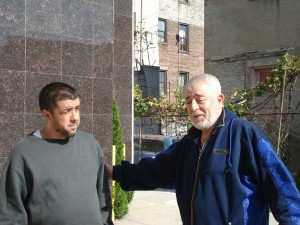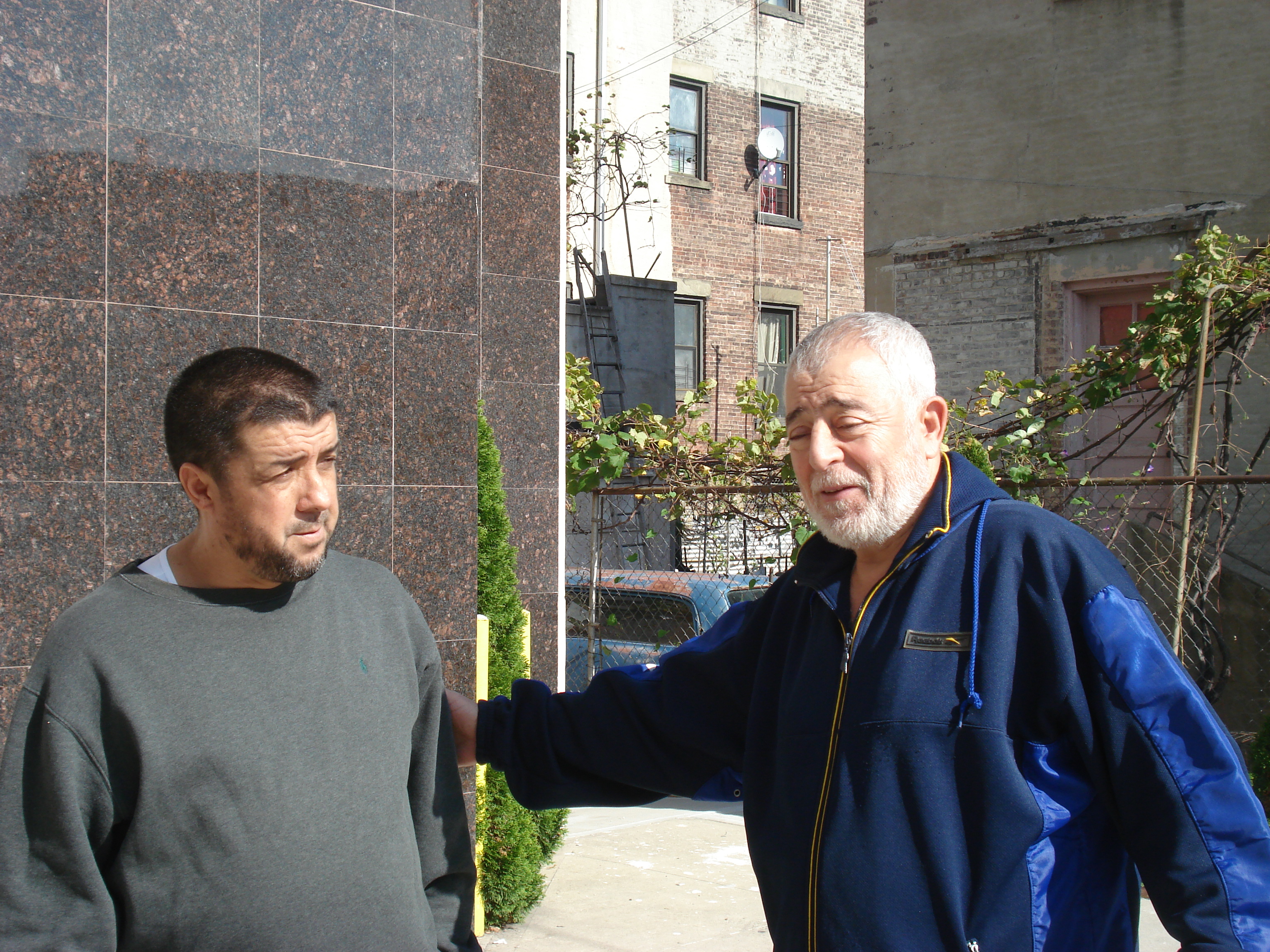
Just down from where I live on 30th Drive (a couple of blocks South of 30th Ave) is the mosque Masjid Al Ikhlas. At intervals throughout the day there is a greater flow of people down the street as people walk to, and then back from, their prayers. I spoke with Rahim and Akim, both from Algeria, outside the mosque just after prayers in the middle of the day.
Rahim has lived in Astoria for ten years. He works as a network engineer. “I have also lived a little bit in New Jersey, Brooklyn, Manhattan, you know, all over,” he says. “A bit in England – I learned to speak some ‘cockney!’ – a bit in Africa. I’ve been in different areas. It’s all the same mother earth you know. Wherever you are going there are the same people and same way or life. You go to work, you have your family, basic things like that. It’s how people behave in an area that makes it good.”
Akim has lived in Astoria for 22 years. He drives a yellow cab, which he says he does not enjoy but “it’s a living you know”. The two are friends, but had seen each other at the mosque that day for the first time in a while.
“For me the mosque is both things,” says Rahim. “You do your prayer, and you get to meet your friends, people who you don’t see otherwise during the day.”
They both go to whichever mosque is closest at hand for prayers. “A mosque is a mosque, it’s a house of God,” says Akim. “It doesn’t have to be this particular mosque. We have five or six of them around here. If you get stuck on Steinway Street for example, we pray there, we wouldn’t come here.”
And when they are not close to a mosque, “you can pray anywhere, in a park, a house, a restaurant, wherever you are,” says Rahim.
Akim adds: “The group prayer is important though. Praying in a group at a mosque, the rewards are bigger than doing it by yourself.” He describes it as collecting more points, which will serve you well at the end of your life.
People praying at Masjid Al Ikhlas come from all over. “From all the continents,” says Akim. “And different cultures. You come, you do what you do, and that’s it. Sometimes they offer food here, some exotic food, and you go for it, otherwise you leave.”
On ways the neighborhood has changed since they have been living in Astoria, Rahim refers to police statistics that say that burglary and other crimes are down. “It’s become safer.” Akim, who has lived in four different apartments since he has been here, mentions rents going up. “Since the crisis, people can’t afford the rent in Manhattan, so they move over here. And by moving over here, the rent here also gets higher.”
Both of them were here when the 9/11 attacks happened, and also saw the way in which the Muslim community was targeted during the period afterwards. “There’s bad and good all over,” says Rahim. “If you take the case of Timothy McVeigh in Oklahoma, he was not a Muslim. Sometimes what you notice is if something is caused by a Muslim they go after everyone, put more pressure. But if it’s someone from another religion, they say ok, that particular guy did it – they don’t say Christians did it, they say Timothy McVeigh did it. But if a Muslim did it they say Muslims did it. So they were generalizing, taking advantage of it. That’s what we feel.
“It happened so it happened, it’s not in your control. The people doing these things don’t ask you beforehand, ‘we’re going to do this or do that’. You cannot say everybody’s good, everybody’s bad, there are bad and good everywhere. You cannot generalize.”
